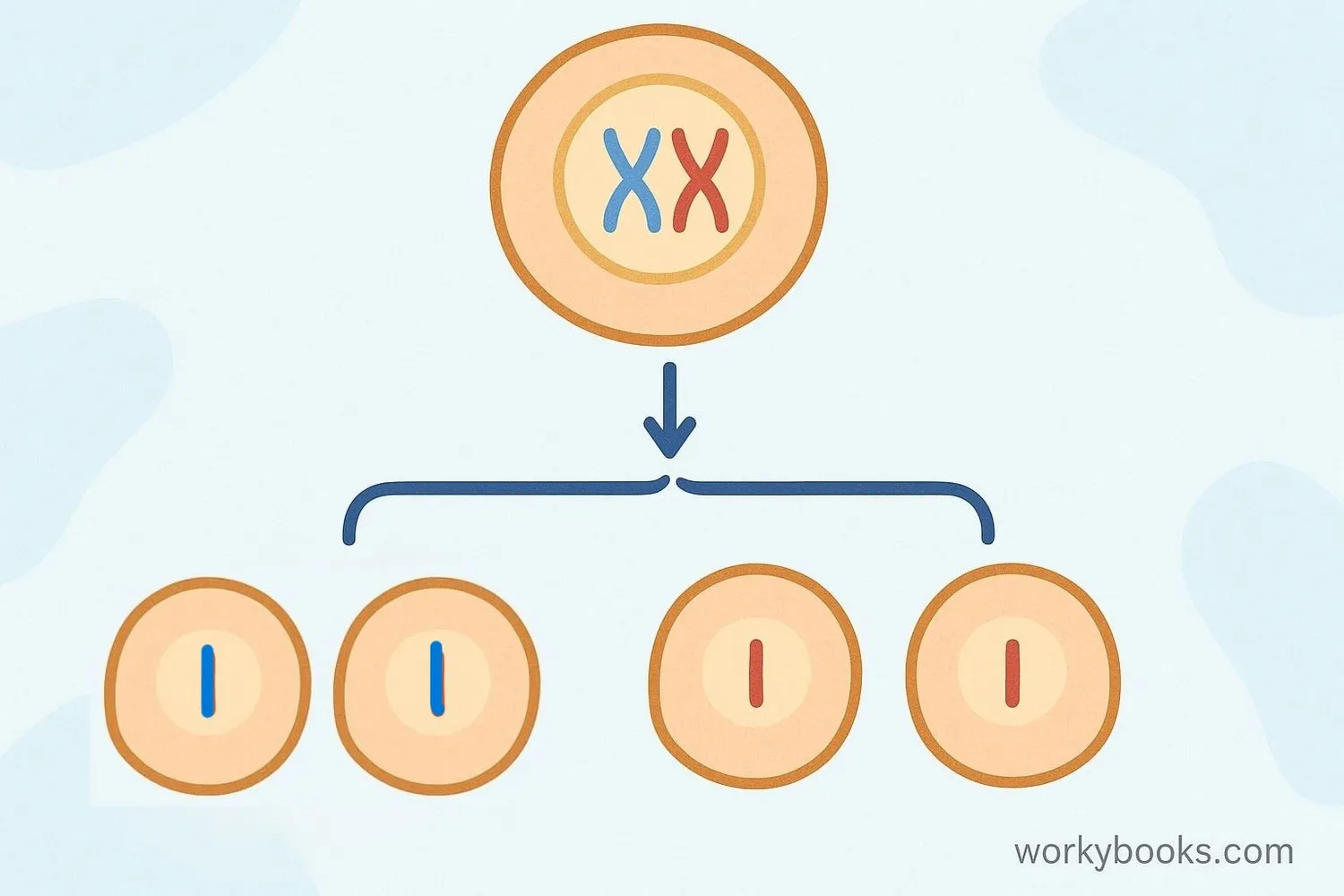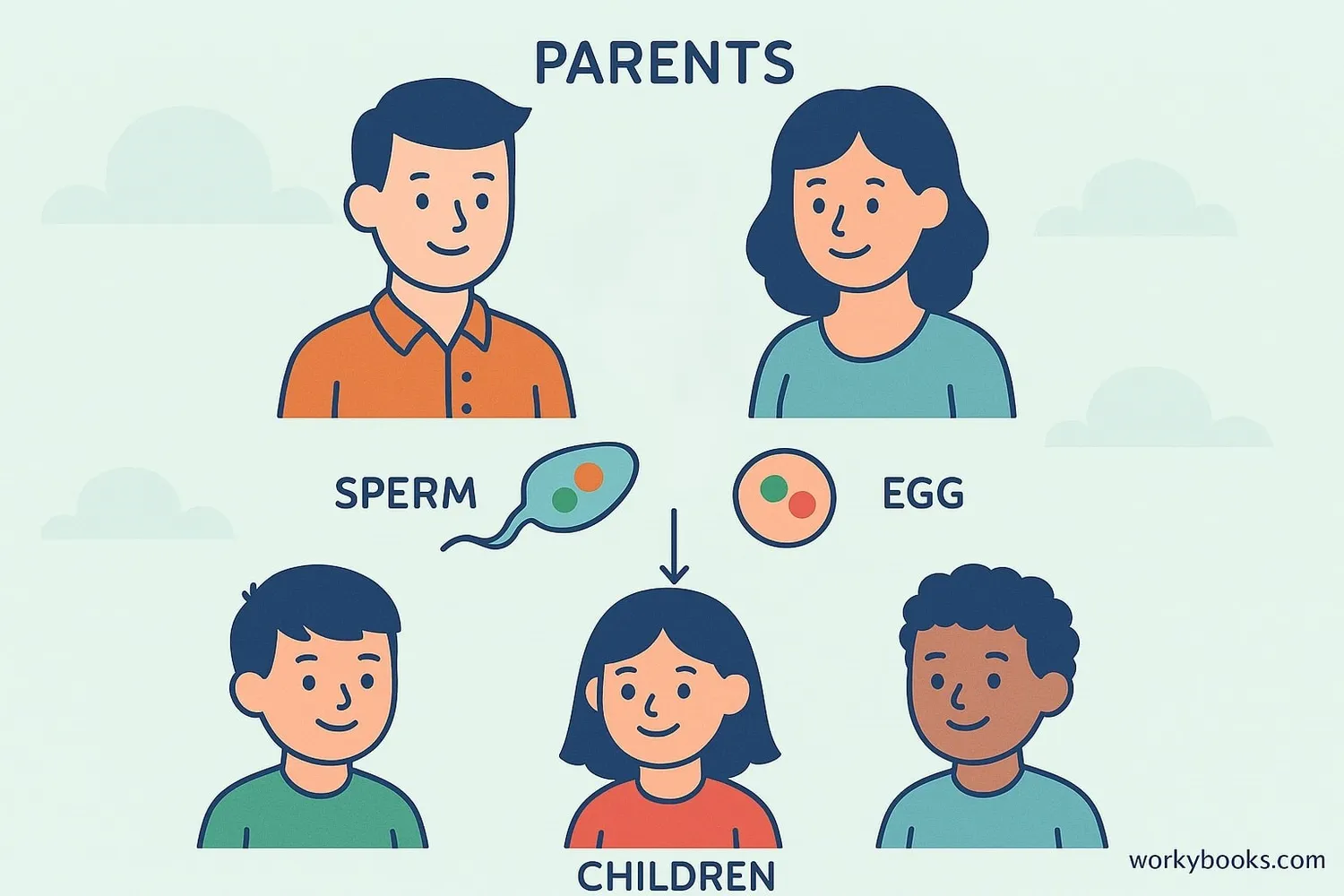Meiosis - Definition, Examples, Quiz, FAQ, Trivia
Discover how cells divide to create reproductive cells with unique genetic combinations
What is Meiosis?

Meiosis is a special type of cell division that creates reproductive cells like eggs and sperm. Unlike regular cell division (mitosis), which makes identical cells, meiosis creates cells with half the number of chromosomes and unique genetic combinations.
Think of meiosis as nature's way of making sure that when a sperm and egg combine, the new organism has the right number of chromosomes. It's why you look different from your siblings even though you have the same parents!
Key Fact!
Meiosis reduces chromosome number by half - from diploid (46 in humans) to haploid (23 in eggs and sperm).
How Meiosis Works
Meiosis happens in two main stages: Meiosis I and Meiosis II. Each stage has four phases, making a total of eight phases:
Meiosis I
Chromosomes pair up and exchange genetic material (crossing over)
Paired chromosomes line up in the middle
Chromosome pairs separate to opposite ends
Two new cells form, each with paired chromosomes
Meiosis II
Chromosomes condense again in both cells
Chromosomes line up in the middle of each cell
Chromosome copies separate to opposite ends
Four new haploid cells form, each with unique DNA
Genetic Shuffling!
During Prophase I, chromosomes swap pieces of DNA in a process called crossing over. This creates new genetic combinations never seen before!
Why Meiosis is Important

Meiosis is essential for life as we know it! Here's why it's so important:
Sexual Reproduction
Creates gametes (sperm and egg) needed for creating new organisms
Genetic Diversity
Produces unique combinations of genes in every gamete
Chromosome Reduction
Ensures offspring have the correct number of chromosomes
Without meiosis, living things couldn't:
• Reproduce sexually
• Create genetic diversity for evolution
• Adapt to changing environments
• Produce offspring with the correct chromosome number
Meiosis is why every person is genetically unique, even siblings from the same parents!
Meiosis Quiz
Test your meiosis knowledge with this quiz! Answer all 5 questions to see how much you've learned.
Frequently Asked Questions
Here are answers to some common questions about meiosis:
Fun Meiosis Trivia
Discover some amazing facts about meiosis!
Genetic Shuffling
Due to crossing over and independent assortment, one human can produce over 8 million genetically unique egg or sperm cells!
Super Gametes
Some fish species produce eggs that can develop without fertilization through a process called gynogenesis, but they still need sperm to trigger development!
Discovery Story
Meiosis was first described by German biologist Oscar Hertwig in 1876 while studying sea urchin eggs!
Unique Timing
Human females are born with all the eggs they'll ever have, paused in meiosis I until puberty. Males produce new sperm throughout adulthood.





